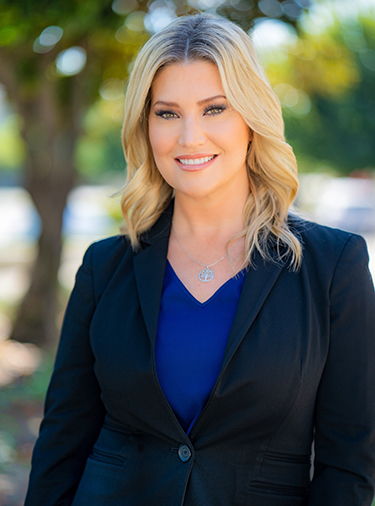|
|
Last Modified on Apr 18, 2025
Selecting the right divorce lawyer plays a critical role in the progression and potential justice of your legal proceedings. There are several very specific questions to ask a divorce lawyer before hiring an attorney to evaluate their experience, their methods, and their compatibility with your requirements.
California’s divorce laws, which involve community property, spousal support guidelines, and unique custody considerations, require you to be informed from the beginning. During the first meeting, you can obtain clarity about your case, establish expectations with your lawyer, and determine if they suit your needs. Knowing the essential questions to ask a California divorce lawyer helps ensure you begin the process well-informed and confident.
What Experience Do You Have With California Divorce Cases?
California divorces follow unique laws that include a community property system that typically divides marital assets and debts equally between both partners. During your initial consultation with a divorce lawyer, you should inquire about their experience with California divorce cases and their knowledge of the local court system.
Having a lawyer who knows the legal environment of your county, whether that is San Bernardino or Riverside, enables a better handling of court schedules and local procedures while accommodating specific judge preferences.
How Will You Handle Child Custody and Visitation?
When interviewing an attorney about custody matters, ask them to explain their methods for addressing custody and visitation under California Family Code Section 3011, which emphasizes children’s best interests.
A competent lawyer should describe the differences between legal custody and physical custody, outline the process for setting schedules, and inform you of judicial attitudes toward co-parenting specific to your area.
How Do You Approach Property and Debt Division?
California’s community property laws require you to ask your attorney about their methods for locating and assessing shared assets and splitting debts. The attorney may plan to suggest hiring external experts, such as appraisers or forensic accountants. Ask the attorney what approaches they might use to resolve disputes between separate and marital property divisions.
Understanding these questions gains even greater importance when you own property, such as your home, or operate a business and possess substantial retirement funds. A qualified lawyer should develop a strategy that protects your financial future through a division that is fair and enforceable and complies with state regulations.
What Is Your Approach to Negotiation and Litigation?
Find out which method the lawyer favors between mediation, collaborative law, or courtroom advocacy, and under which circumstances they suggest each option.
California settles over 65% of custody cases outside of trial by using mediation and attorney-mediated agreements. Understanding your attorney’s preferred method reveals if they seek efficient resolution, assertive action, or both.
If your case involves high-conflict disputes, you still need an attorney who has experience with litigation. However, a lawyer who excels in negotiation can help reduce both expenses and emotional strain if your case remains cooperative.
What Can I Expect in Terms of Timeline and Cost?
Divorces in California generally take six months at a minimum due to the state’s mandatory waiting period. Your attorney can provide an estimated timeline for your case, depending on its complexity, and explain their billing methods. Is their billing structure based on a flat rate or hourly rates? Do they require a retainer? Clear cost information prevents unexpected expenses and ensures clients understand what to expect.
Make sure to evaluate the responsiveness of your lawyer because effective communication becomes crucial during such stressful proceedings. Early discussions with your lawyer help you understand the financial costs of a divorce in California and their involvement throughout your case.
FAQs
Q: Is California a 50/50 Divorce State?
A: Yes, the community property system in California mandates equal division of assets and debts acquired during marriage when couples divorce. Certain assets, like gifts, inheritances, and property acquired before marriage, may remain separate during divorce proceedings. A divorce lawyer can assist in identifying community property according to legal standards and ensure its division is fair under California Family Code Section 2550.
Q: Do I Have to Go to Court to Get a Divorce in California?
A: No, court appearances are not mandatory for all California divorce cases. Most California divorce cases are resolved through mediation or negotiated agreements instead of courtroom trials. Through mutual agreement on critical matters, such as custody arrangements and financial support, you can prevent lengthy legal battles.
Should any disagreements persist between the parties, a judge can intervene. Your attorney should guide you through both pathways while safeguarding your rights during the entire procedure.
Q: How Long Does a Divorce Take in California?
A: The divorce filing process in California mandates a six-month waiting period, which starts when the divorce papers are delivered to your spouse. The amount of time needed may increase based on how complex the case is, how assets need to be divided, and child custody considerations. By hiring a lawyer, you can make the process more efficient and overcome additional delays.
Q: What if My Spouse Hires a Lawyer and I Don’t?
A: Being unrepresented while your spouse has legal counsel puts you at a disadvantage during property division negotiations and decisions about support and custody. California divorce laws present complex challenges where early decisions can create lasting consequences. Engaging your own lawyer safeguards your rights while ensuring fair agreements and proper adherence to court procedures.
Contact All American Law
Navigating the personal and legally complex journey of divorce becomes more manageable and less overwhelming when you ask the right questions from the beginning. A skilled attorney assists you in understanding community property laws and navigating child custody. They can protect your rights and plan your future.
To successfully navigate a divorce, it is essential to hire a divorce lawyer who understands California family law well and maintains clear communication while listening carefully. All American Law proudly helps clients understand every step of the divorce process through clear communication and compassionate support.
Our team guides clients to make informed decisions with confidence, regardless of whether your case is amicable or high conflict. Reach out now to set up a consultation and begin your journey with reliable legal guidance.





